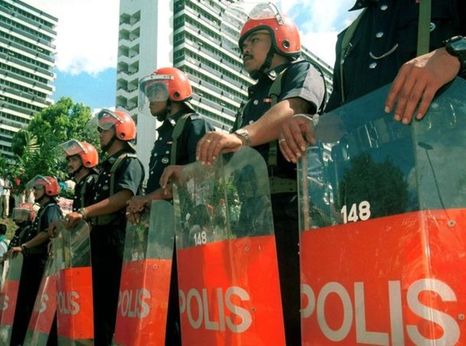Indigenous land rights at risk

On 5 February 2020, the Selangor Forestry Department placed the notice of the degazetting of Kuala Langat North Forest Reserve (KLNFR) in major newspaper dailies in Malaysia. The notice invited stakeholders in the district to voice their objections to the proposal within 30 days, in accordance with the Public Inquiry Selangor Rules 2014, as well as the National Forestry Act (Adoption) Enactment 1985. The proposed area comprises 97 per cent of the total forest reserve and is home to four Temuan Indigenous settlements – Bukit Kecil, Bukit Cheeding, Busut Baru, and Pulau Kempas.
In Malaysia, the “gazetting” of a land as a forest reserve ensures that the land cannot be used for urban development, agriculture or any kind of activity that would require the forest to be cleared. Degazetting a forest reserve removes this status opens the land up to commercial activity, and the displacement of the communities residing there.
According to the community, the land has faced increasing threats from development and logging over the years. In 2017, the Department of Orang Asli Development (JAKOA) applied for this area to be gazetted as Orang Asli land; the application is still waiting for government action. KLNFR is also a peat swamp forest, which functions as an important ecosystem for climate control. According to the Global Environment Centre, the proposed degazetting of KLNFR is not in line with the Selangor State Government's plan, outlined in the 2035 State Structure Plan, to maintain 32 per cent of the forest area in the State of Selangor.
Across Malaysia, extensive land development is adversely affecting Indigenous peoples, posing a threat to ancestral lands, traditional ways of life and a wide spectrum of human rights. The Indigenous peoples of Malaysia comprise over 67 ethnic groups, composing 14 per cent of the country’s population. They reside in almost every state and territory within the Federation and are afforded special recognition in the country’s constitution. Despite this, they continue to suffer from disproportionate levels of poverty and ongoing social exclusion, due in part to an absence of formal recognition of their land, as well as a lack of consultation and free, prior and informed consent on proposals to expropriate their land. This makes it difficult, if not impossible, for communities to oppose development once it has started. In their attempt to defend, protect and promote the land rights of Indigenous peoples, human rights defenders face harassment, intimidation, arrest, and even death.
The Malaysian Government voted in favour of the United Nations Declaration of the Rights of Indigenous Peoples (UNDRIP) in 2007, which obligates it to respect the rights of Indigenous peoples to self-determination and the right to free, prior and informed consent. The Malaysian government also ratified the Convention on the Rights of the Child (CRC) in 1995. The UN Committee on the Rights of the Child that oversees the convention stated that, “the use of traditional land is of significant importance to [Indigenous children’s] development and enjoyment of culture”, and that States who have ratified the convention should “closely consider the cultural significance of traditional land and the quality of the natural environment”.
- Downloads
- Download in PDF
- Download in Word